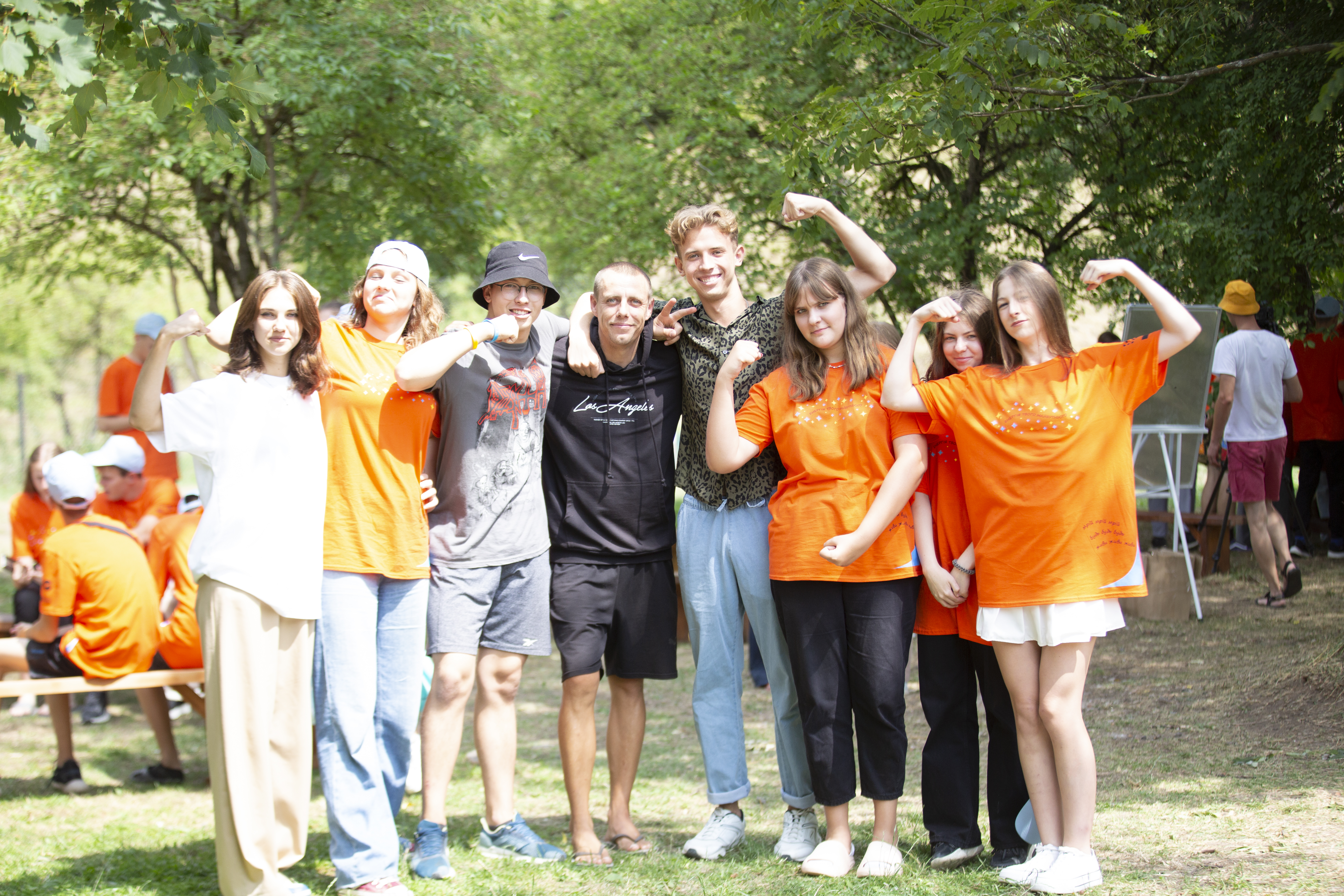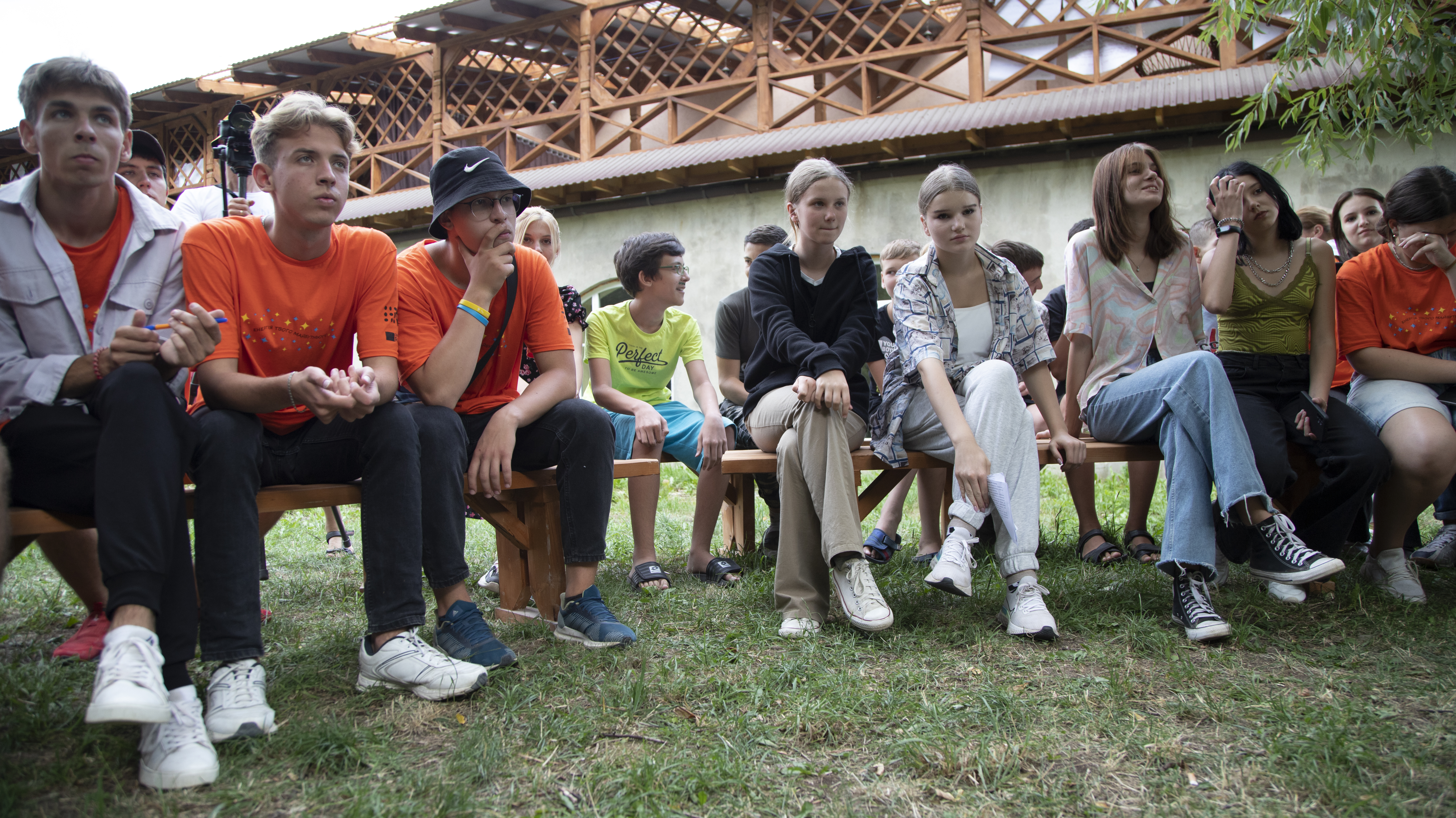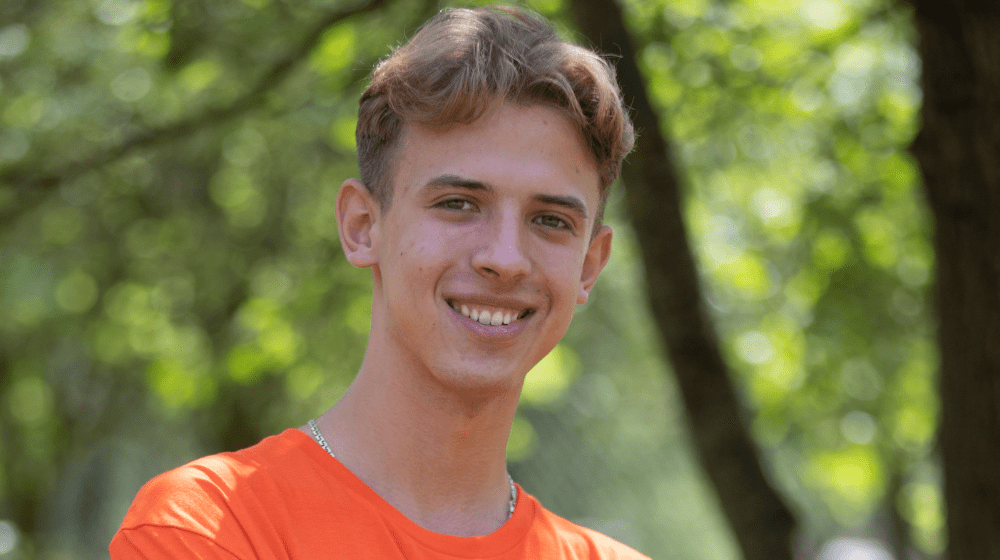«Two months of living under occupation made me realize that the most valuable thing is to be able to communicate with like-minded people and peers», - Artur Mamayev, 18, a student of the Kyiv Medical University, Kherson
Two days before the war broke out, I decided to go home from Kyiv to see my parents on the weekend. On the 24th in the morning, my mother woke me up and told me that the war had broken out. We decided to leave Kherson and go to the village where my grandparents live. In a few days, that village got surrounded by militaries. The siege lasted for two months. We could not leave anywhere. The village had no electricity or communication means. Our two-room house hosted as many as 14 people. That March was very cold, with persisting below-zero temperatures. We chopped firewood to cook food on and fire the stove. We did have a gas cylinder, but we used it sparingly because we did not know how long that situation would last.
The family agreed that everyone will have a fixed portion without any seconds. Grandma still had some candies that she had bought before the war. She gave one piece a day to her grandchildren to try and make their life a bit sweeter. Our grandfather, who realized that my cousin and I ended up in an information vacuum and began to lose hope for rescue, came up with an assignment for us every day. We survived because we worked physically - we cleared weeds from the vegetable garden and dug a new waste pit. When we managed to buy a generator, we charged our phones and turned on the TV. But all Ukrainian channels had already been blocked, we read books instead, played games, or talked.
A few weeks after that, we almost ran out of food. It was possible to buy food only in Kherson, which was 30 km away from us. There were checkpoints on the way. The drive was scary, but we got there safe and sound. When I arrived in my native Kherson, I was shocked by what was happening there. Two APCs stood near our house and a tank was dug in.

We passed 10 Russian checkpoints. At each one, we were made to get out of the car. They could take away anything they wanted. At one of those stops, they took away our food silently and without any explanation. On another, they checked my phone for about an hour. Before that, I had deleted almost everything. But I saved a photo where my brother and I, with shovels in our hands, are helping our grandfather. The military thought we were digging the trenches and that my brother and I served in the army. I had to explain that this is not a trench but a vegetable garden and a future latrine.
Now my mother, sister, and I live in Vinnytsia. In June, I accidentally found out about the programme for teenagers and went to the camp. I filled out the questionnaire and, together with a great team, took the training. And after that, I was invited again, that time as a peer-to-peer instructor. And it was a great experience. As it turned out, I also have a teaching talent. Although I studied medical practice for almost a year, in the future, I was supposed to be a dentist. But now I have more ambitious dreams. And all that is thanks to the training that I took here.
To find out more about camp: How to help the teenagers regain confidence and believe in their future if the war has destroyed all their plans?

I wish my peers, all Ukrainian youth, not to be afraid to make plans for the future. I fell into such a trap, and I was afraid that I won’t be able to get out of it. The war left me without the right to live at home, my fellow students went worldwide, and my girlfriend fled Ukraine. But I believe that the war will end, and we, the young people, will have to rebuild the country, and it depends on us what Ukraine will be like in the future.
The comprehensive psychosocial programme for teenagers “Energy of Your Future” is implemented within the United Nations Recovery and Peacebuilding Programme with support by the European Union and financial support by Denmark.


